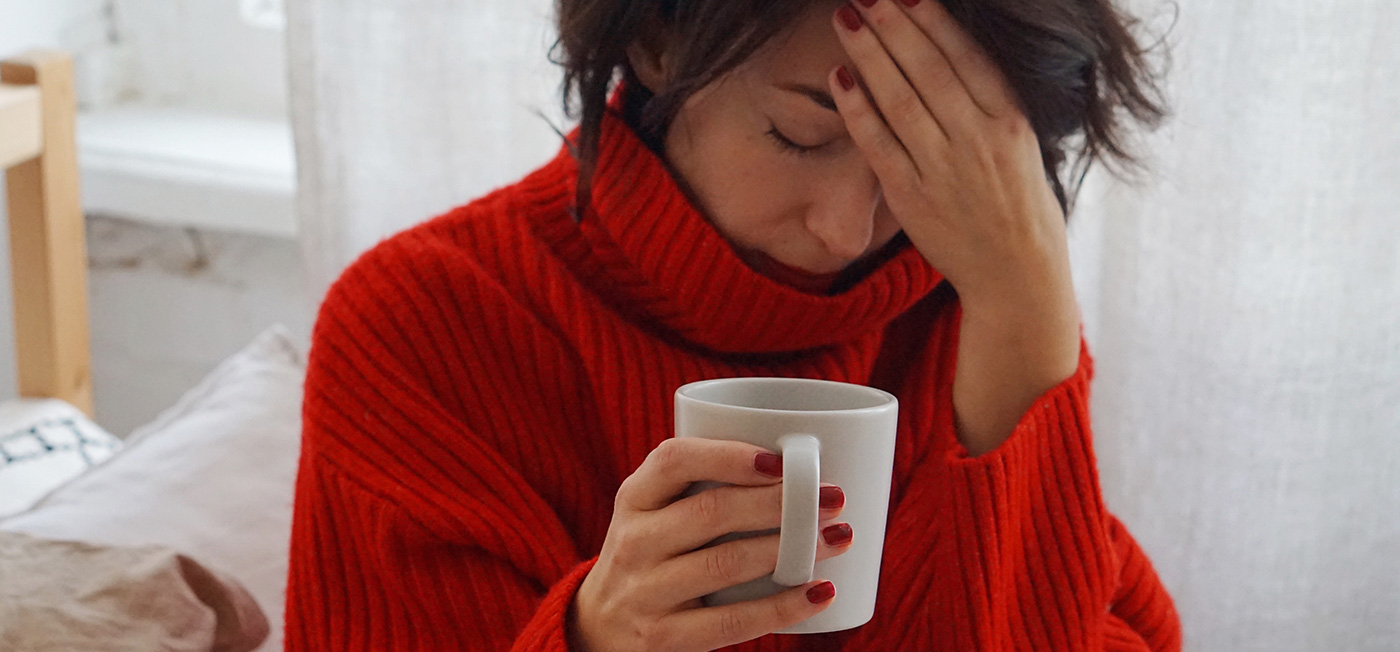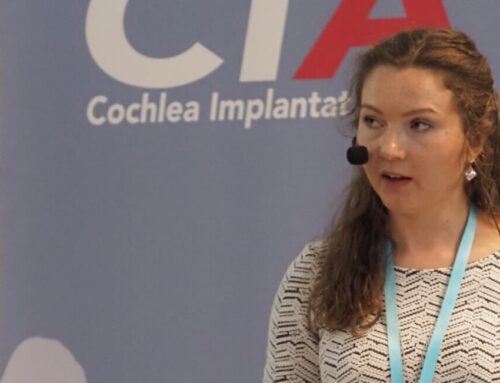The effects of a cold on hearing, with or without a cochlear implant
The common colds can also affect hearing both in people with normal hearing and in users of hearing implants. If pain in the ear occurs during a cold, you should consult a doctor immediately!

Between seasons, colds and flu infections occur more frequently, although both terms are equally misleading. The cold is not actually triggered by feeling cold, but by a virus. A weakened immune system, where cold could play a role, increases the likelihood of contracting the disease. Even though some symptoms resemble a mild flu, most colds are triggered by so-called rhinoviruses. Viruses from the coronavirus family are responsible for about ten percent of all colds, and in some cases influenza or flu viruses are also involved in the cold.
Viruses or bacteria can also enter the middle ear via the Eustachian tube. The inflammation can cause hearing problems temporarily, but in some cases also permanently. Even in CI users, where the implant bypasses this area and stimulates the middle ear, the common cold can affect hearing outcomes in several ways.
The common cold and hearing
The Eustachian tube´s function is to ensure pressure equalization between the otherwise hermetically sealed middle ear and the external air pressure. If the swelling of the Eustachian tube due to inflammation makes this impossible, this leads to temporary hearing loss in people with normal hearing or users of hearing aids. Inflammatory processes in the middle ear can also affect hearing in middle ear implant users.
Sometimes chronic middle ear infections can even lead to permanent hearing loss. This can lead to the use of bone conduction systems such as the ADHEAR or bone conduction implants. Even if this is not the case, prolonged or recurrent middle ear infections can lead to problems in speech development in children. If ear pain occurs during a cold or a flu-like infection, the doctor should be consulted immediately!
Flying with a cold can temporarily affect hearing
During flights, severe changes in pressure during take-off and landing can occur. A healthy ear can compensate for the resulting pressure difference between the outside world and the middle ear via the Eustachian tube. You can help your infant do this by giving them something to drink during the takeoff and landing process.
However, if the Eustachian tube is swollen due to a cold, this can impair pressure equalization. The consequences can range from a feeling of pressure to pain and hearing loss. The latter can even persist for several hours or days after landing. Those who cannot avoid air travel despite a severe cold could use anti-swelling remedies, such as lozenges, cough sweets and nasal sprays with essential oils, which can reduce the risk.
A cold can affect hearing in CI users
The middle ear and mastoid, which are in the proximity of the implant body, are normally filled with air. This allows optimal current flow and thus the electrical impulses can affect the auditory nerve cells undisturbed.
If the middle ear and mastoid are now filled with different fluids, for example with secretion (cold) or blood, the electrical resistance and current flow can change. On the other hand, pressure can possibly be exerted on the electrode and the inside of the cochlea (displacements of 0.01 mm and less). This is already enough to change the subjective hearing impression or because the sound is unfamiliar, to impair it.
In this case, a classic therapy with nasal drops is usual. Also important: when sneezing, you should never hold your nose. And of course, in times like these, sneeze into your elbow and not into your hand!
What else can I do against cold?
Since the Sars-CoV-2 outbreak, MNS or FFP2 masks have been mandatory in some public areas. They are not only effective against corona viruses, but also against other infectious diseases – including seasonal cold and flu.
Otherwise, the usual hygiene measures and the general boosting of the immune system will also help. For example, with fresh fruits and vegetables, sun, and exercise in the fresh air.
Taking supplements such as vitamins does no harm, but there is also no scientific evidence of their benefit. Unless you have a specific vitamin deficiency syndrome, but these deficiencies are very rare.
If the cold still happens, there are different methods to fight it back. In case of an acute cold, the home remedies and conventional medicines can be used to alleviate the symptoms. Again, anything that strengthens the body´s immune system is helpful, which includes bed rest and enough sleep. Only in case of a bacterial inflammation, the antibiotics can sensibly be added to the therapy.






